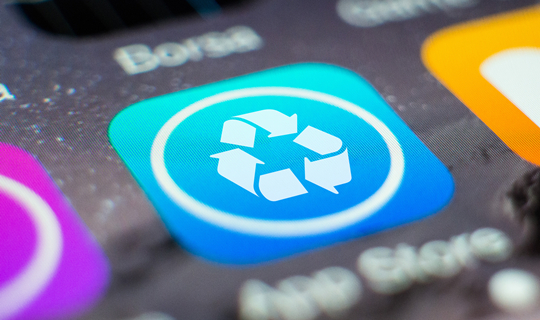
Sustainability Efforts
Newly Weds Foods is committed to minimizing its global footprint in a number of ways. The three main areas include energy conservation, reduced packaging as well as, recycling office and plant waste.The sections below outline in more detail what has been done specifically and represent our continued focus going forward.
Energy Conservation
Newly Weds is concentrating efforts within manufacturing to achieve an overall reduction in energy usage. The specific areas are reflected in the acronym WAGES (water, air, gas, electricity, steam).
Water: This resource is being measured in areas of significant consumption with the objective to reduce overall usage where feasible.
Air: Compressors have been evaluated to determine if sized correctly for the work load and replaced as needed if oversized for work requirements. In some specific applications, compressed air usage is being reduced through the installation of reduced flow nozzles to off-set the overall energy required to generate compressed air.
Gas: Burner management and optimization programs have been implemented to reduce overall energy usage in ovens. Some limited heat recovery programs have been evaluated for efficacy.
Electricity: Motor sizing & load factors were evaluated to determine if units are sized correctly for work load.Where necessary, motors are changed-out with more efficient or variable speed units. Additionally, lighting within plant/office locations, has been modified to low energy lighting with occupancy sensors.
Steam: Boiler systems were evaluated to determine if they are sized appropriately for the load and if insulation is adequate to minimize heat loss and conserve energy used to generate steam. Changes made as needed.
Other Energy Savings Projects: Capture of compressor heat to supplement warehouse heat; hot water from cooling compressors used to reduce the energy required to heat boiler water,programmable thermostats, etc.
Packaging Materials
Evaluate packaging to achieve an overall reduction in the amount of material used. Programs are actively in place and have had an effect in the following areas:
Paper Bags: Converted 3-ply paper bags to 2-ply high-performance bags to off-set paper material usage.
Pouch Films: Down gauged film material sealant layer to address LDPE material usage.
Plastic Shipping Sacks: Replaced 3-ply sacks with 2-ply poly shipping sacks to reduce overall material usage.
Pallet Sheets: Replaced virgin material pallet trays with 100% recycled fiberboard.
Recycling of Waste Products
Active programs are in place at factory level to capture and recycle waste materials at the point of use. Trash loads sent to landfills have been reduced significantly.
Corrugated Materials: Corrugated bundlers have been installed.
Plastic Sheet Materials: Where supported by local reclamation processors, plastic sheet materials are bundled for recyclers.
Plastic Buckets & Pails: Used plastic buckets and pails are sent to material recyclers to recover the base resins.
Metal Drums: Metal drums collected & sent to scrap metal processor.
Pallet Reclamation: Damaged pallets sent for reconditioning.
Office Paper: Collected & sent to recycling where collection points exist.

